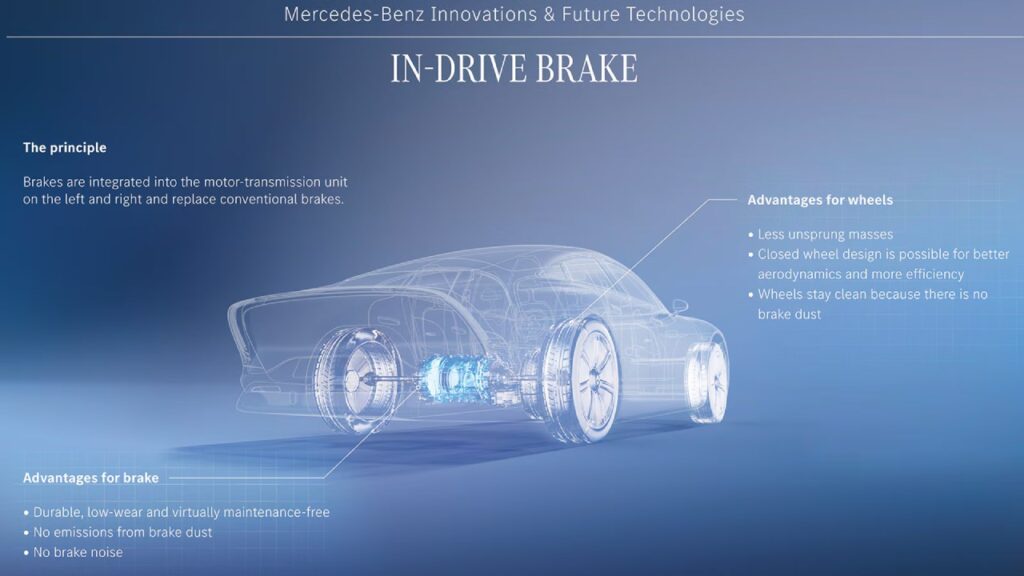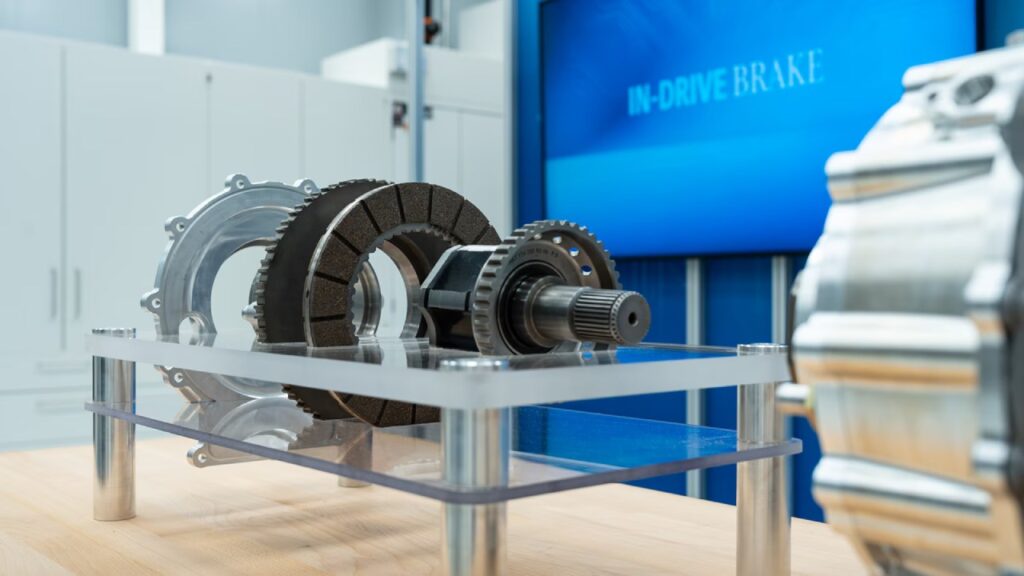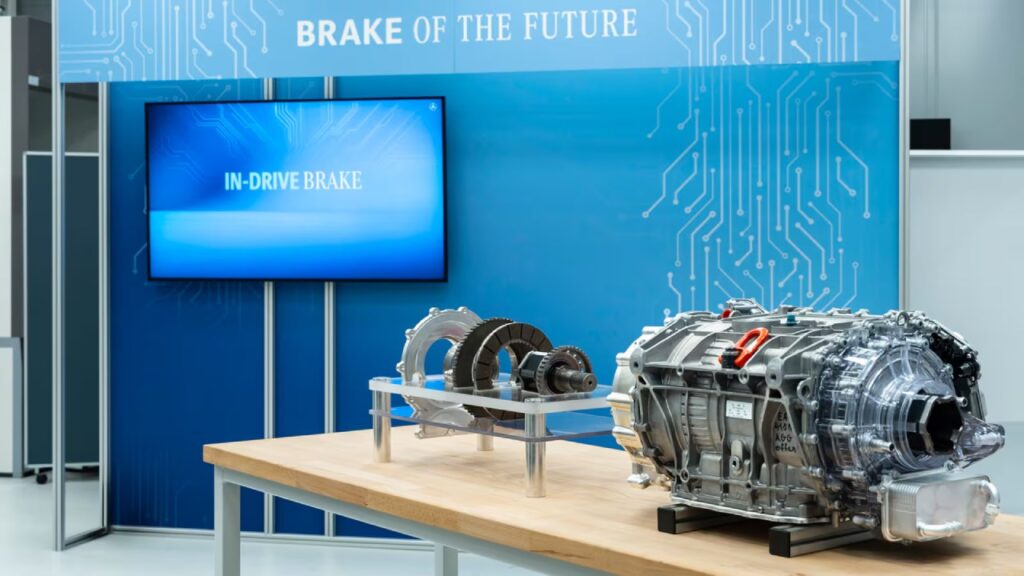We keep coming across new technologies with regard to EV batteries, but brakes are not something you see carmakers work on all that often
Mercedes is working on a new technology which is capable of making brakes for EVs maintenance-free. The German car marque is known for its innovative approach. In fact, that is the reason why it is among the biggest luxury automakers on the planet. While plush cabins, the latest tech, gadgets, and comfort are its strong suits, in the EV era, it is now aiming at creating another key addition to its list of technological advancements.

You might also like: Rivian R2 To Source 4695 Cylindrical Batteries From LG Energy Solution
Mercedes To Create New Brakes For EVs
Mercedes claims that its new EV brakes will be “virtually maintenance-free”, trap brake dust, better for the environment and promise to eliminate brake fade. The biggest difference between these new brakes and traditional brakes is that these will be integrated inside the housing of the EV’s drive unit. This promises to omit the need for service altogether. We know that EVs can use their motors to decelerate, which is called regenerative braking.
As soon as the driver lifts off the foot from the accelerator pedal, the EVs start to slow down. In fact, this also puts some electricity back into the battery. The new in-drive brakes are water-cooled and don’t spin and contain a circular brake pad which spins with the motor. There is no need for a caliper and the deceleration is achieved by pushing the circular brake pad into the stationary disk. With this, no service is needed and the dust can be kept inside the compartment which doesn’t need to be emptied.
Another factor that doesn’t come to mind naturally is the emission regulations. Remember, Euro 7 (EU7) emission norms even take into account tire and brake particulate pollutants from a car. These will come into effect in 2026. With the dust-trapping mechanism of these in-drive brakes, that aspect will be taken care of. Further advantages include reduction of unsprung weight, lower braking noise, rust protection, and the ability to cover the wheels of the car to aid aerodynamic characteristics (something that we have seen in a certain solar EV!). Not to mention, the free space due to a lack of brake caliper will allow engineers to package the EV better.

You might also like: Hyundai To Create LFP Battery With 300 Wh/kg Energy Density By 2025
Learn Electric Cars Says
I must admit it is very intriguing to see a top legacy carmaker working on something other than the obvious. The very essence of EVs is to reduce our carbon footprint. While tailpipe emission is the major contributor to that, other aspects like tire and brakes are also imperative. Mercedes has not yet shared the production timeline of this technology. Still, it is exciting to see heavy work being done in this regard. I shall keep an eye out for more details in this case.


Pingback: Mercedes Working On Solar Paint To Eliminate Daily EV Charging